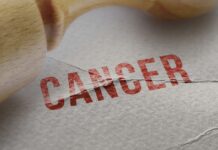With diabetes rates soaring (in the US, the incidence increased by 23% in the 10 years leading up to 2005), the prevalence (that is, the number of people living with the disease) went up 62% in the same period. It’s just been announced that diabetes-related medical and economic costs in the United States hit $174 billion in 2007, a 32% increase from 2002.
Well, too much refined carbohydrate and sugar is the number one reason, no question. But the huge coffee intake in the US may also be a factor. Some studies have shown that coffee may protect against wild swings in blood sugar, but caffeine is not the reason. Separating caffeine from coffee means it still sends the blood sugar wild. Better to drink decaffed, says a new report:
[Lane, J.D. Diabetes Care, February 2008; vol 31, manuscript received ahead of publication.]
James D. Lane, PhD, professor of medical psychology, Duke University Medical Center, Durham, N.C., says people with diabetes are likely to get different effects from coffee.
“I am not going to say that everyone with diabetes has to quit drinking coffee, but I think those who are concerned about their blood sugar not being as low as they’d like it to be should try quitting coffee,” he says. “They will be able to tell right away if it improves their glucose control. And it may help reduce their risk of complications of diabetes or reduce their need for additional diabetes medications.”
“Every morning we wake up in withdrawal, thinking we need coffee to wake us up — but it really is just helping us get rid of withdrawal symptoms from not drinking coffee overnight,” he says. “Once we get off, well, I wake up feeling better than I did when I was drinking coffee. I don’t feel groggy or tired. Everyone I talk to has had a similar experience — it is not that we become zombies after quitting drinking coffee.”
Learn more about food reactions, addictions and withdrawal symptoms from my book DIET WISE




